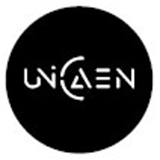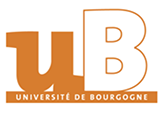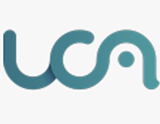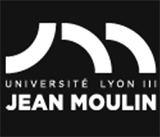Detailed introduction of the University of Burgundy:
Introduction
The University of Burgundy is a multidisciplinary public university located in Dijon, Burgundy, France. Its history can be traced back to 1722, and it has a profound academic accumulation in many disciplines.
Overview
Student size: It has about 30,917 students, including 16,800 undergraduates, 9,400 postgraduates, and 1,299 doctoral students.
Faculty: 3,000 faculty members, including 1,519 professors and 2,700 associate professors.
History
In 1722, the Dijon Law School was established at the initiative of King Louis XV of France.
Between 1805 and 1809, French Emperor Napoleon I established the Faculty of Science, Art and Medicine in the heart of Dijon.
2018 In 1722, the school established teaching sites in Dijon, Auxerre, Châlons-sur-Saône, Le Creusot, Magon, Naver and other places.
Founded in 1722.
School Strength
Teaching Quality: As one of the French public universities, the teaching follows the European Bologna Process and adopts the European Credit Transfer System. The degrees awarded are widely recognized in Europe and internationally. The school offers a wide variety of courses, covering undergraduate, master, doctoral and other levels, focusing on the combination of theory and practice, and cultivating students' comprehensive literacy and professional ability.
Scientific research level: The school has a total of 49 research teams recognized by the qualification label, of which 27 are cooperative research units of the French National Center for Scientific Research (CNRS), the National Institute of Agronomy (INRA), and the National Institute of Health and Medical Research (INSERM). These research units have a total budget of 10 million euros, receive 970 doctoral students, and have developed more than 50 patent certificates.
Institutional nature
Public university.
Educational philosophy
Focus on cultivating students' innovative thinking, practical ability and interdisciplinary literacy, emphasize the combination of academic research and actual social needs, and encourage students to actively participate in scientific research projects and social practice activities to enhance students' comprehensive ability and employment competitiveness, and lay a solid foundation for students' future career development and personal growth.
Key laboratories and disciplines
Key laboratories: The school has a number of laboratories and research centers related to key disciplines, such as professional laboratories in the fields of materials science, life science, earth science, etc., which provide teachers and students with advanced research equipment and a good academic environment, and promote the in-depth development of related disciplines.
Key disciplines:
Law - Administration: The teaching and research in the French legal system, administrative management system, etc. are at a high level, and many professionals in the fields of law and administration have been trained, making important contributions to the construction of the rule of law and social management in France.
Economics and Management: Covering multiple disciplines such as economics and management, focusing on cultivating students' economic analysis, business management, marketing and other abilities, it has provided a large number of professionals for enterprises and financial institutions, and has played a positive role in promoting regional economic development.
Literature - Language: It has significant advantages in French literature, comparative literature, linguistics, etc., and has trained many outstanding literary research talents and language professionals, making important contributions to the development of French and world literature and language research.
Science, technology, and health care: including physics, chemistry, biology, medicine, pharmacy and other disciplines. The school has carried out extensive and in-depth research in these disciplines, achieved a series of important scientific research results, cultivated a large number of professional talents for the health care industry, and also made positive contributions to the advancement of science and technology.
Humanities and social sciences: such as philosophy, history, geography, sociology, psychology and other disciplines, provide students with a comprehensive and in-depth humanities and social sciences knowledge system, cultivate students' understanding and analysis of human society and culture, and cultivate professional talents for social science research and related industries.
Department
The school has 11 teaching and research units, 4 engineering colleges, 3 university technical colleges and 2 vocational colleges.
Ranking
Ranked 15th in France.
Expenses
Tuition fees are uniformly stipulated by the French government. The annual tuition fee for undergraduates is about 200-400 euros, and the annual tuition fee for masters is about 400-600 euros. In addition, some special majors or programs of the school may have additional fees, such as practical course fees for some graduate majors.
Campus
Campus distribution: The main campus is located in Dijon, and there are also relevant professional teaching sites in Auxerre, Chalons-sur-Saône, Le Creusot, Magon, Naver and other places.
Teaching facilities: The school has complete teaching facilities, including libraries, laboratories, multimedia classrooms, etc., providing students with good learning conditions. At the same time, the school also has multiple student dormitories, canteens and cafes, as well as student organizations and sports associations, etc., which enrich students' extracurricular life.
-

University of Angers
-

University of Caen Normandy
-

University of Bordeaux
-

Claude Bernard University Lyon 1
-

University of Burgundy
-

CY Cergy Paris University
-

Clermont Auvergne University
-

University of Artois
-

Jean Moulin University Lyon 3
-

University of Franche-Comté
-

Mesoamerican University
-

Istmo University
-

Mariano Galvez University of Guatemala
-

Regional University of Guatemala
-

Galileo University
-

Francisco Marroquín University
-

Rafael Landívar University
-

University of the Valley of Guatemala
-

University of San Carlos of Guatemala
-

Technological Institute of Tlaxcala Plateau
-

Golfo University
-

Technological University of South Sonora
-

Technological University of Huejotzingo
-

Tizimín Institute of Technology
-

Chilpancingo Institute of Technology
